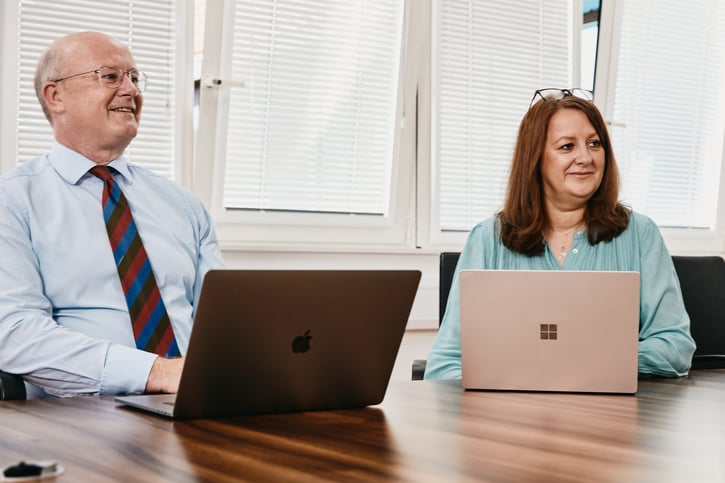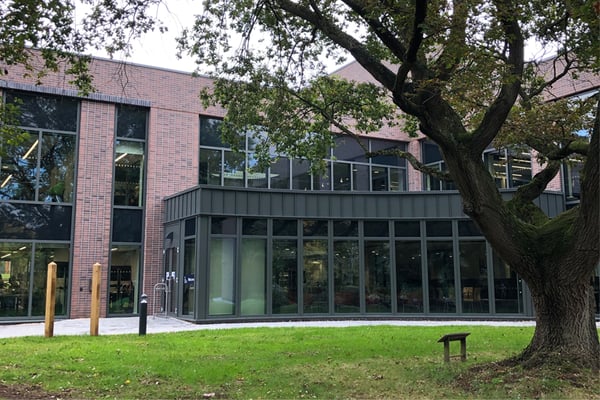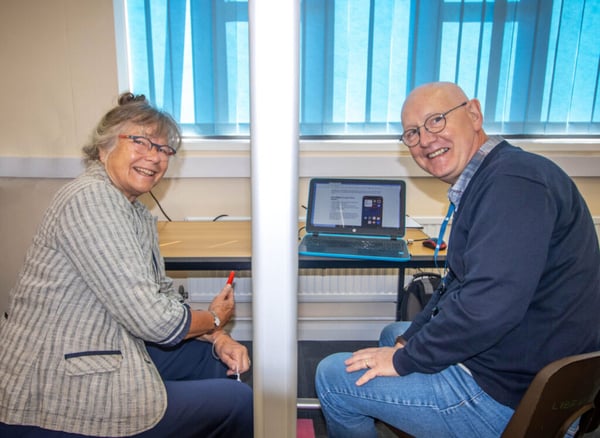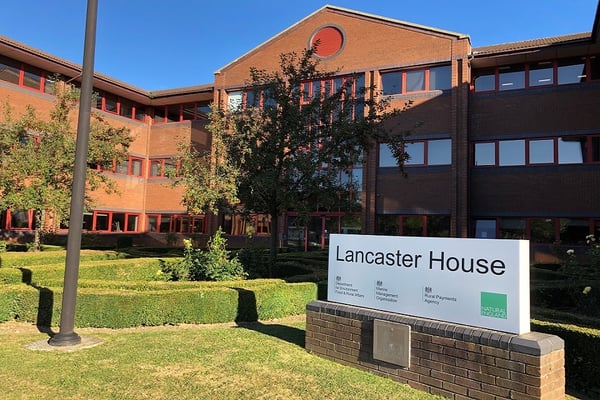How veterans are helping Companies House on its transformation journey
 In In 2020, the Government introduced an initiative aimed at making the Civil Service “a great place to work for veterans”. The scheme, which is part of the Veterans’ Strategy Action Plan, highlights the transferable skills and talents that ex-service personnel can bring into public administration from the time they served in the armed forces.
In In 2020, the Government introduced an initiative aimed at making the Civil Service “a great place to work for veterans”. The scheme, which is part of the Veterans’ Strategy Action Plan, highlights the transferable skills and talents that ex-service personnel can bring into public administration from the time they served in the armed forces.
One of the government departments that has signed up to the Great Place to Work for Veterans programme is Companies House, where a group of ex-service personnel is working to ensure the agency success in the delivery of its five-year transformation programme.
Problem-solvers and quick-thinkers: the skills that veterans are bringing to government
There are around 2.2 million armed forces veterans in the UK and every year around 15,000 people leave the Armed Forces, according to government figures. A survey by the Royal British Legion, a charity providing support to veterans and their families, estimates that in 2016 10.8% of ex-service personnel of working age (16-64) and living in the UK were unemployed.
Although research by consultancy firm Deloitte shows that 72% of organisations with active ex-military recruitment programmes would definitely recommend employing veterans, three in ten businesses still say that they have not even considered employing veterans.
When it comes to skills, veterans can bring expertise to areas where organisations are facing shortages, including strategic management, team-working, staff management and motivation, positive attitude and listening skills.
In 2020, Companies House launched an ambitious five-year transformation strategy with the aim of making the organisation “the most innovative, open and trusted registry in the world”. The agency, which was established in 1844 as the UK’s register of companies, is set to undergo some of the most radical changes in its history and, as such, it needs a wide pool of talent and talent and skills to achieve it.
John-Mark Frost, Director of Transformation Delivery at Companies House, said that any kind of transformation presents challenges and organisations should keep an open mind about where to find the skills necessary to overcome them.
Half-way through its transformation journey, Companies House decided to ‘recruit’ ex-military service personnel to bring their skills and experience and help the organisation with its transformation. 
“Ex-service personnel are often agile, quick thinkers with great problem solving abilities,” Frost told Government Transformation. “At Companies House, these attributes complement the amazing and diverse range of skills and backgrounds we already have perfectly."
Companies House plays an important role in supporting the growth of the UK economy and underpinning confidence in businesses. Post-Brexit, new legislation means that the agency will have new powers and its traditional role “drastically reformed” to help fight financial crime and further drive confidence in the UK economy.
One of the ex-service personnel helping within this endeavour is Lance Patterson, a 55-year old veteran who spent time serving in the conflict in the Yugoslav Wars, as well as Hong Kong, Canada, and Germany. In addition to his leadership roles within the British Army, Patterson also worked for the Ministry of Defence as the Head of Employer Engagement.
Today, Patterson works at the Companies House offices in Cardiff coordinating policy work related to proposed new legislation aimed at tackling economic crime and ensuring the register continues to inspire trust and confidence. Most of his responsibilities are focused on tasks which are crucial to the agency’s transformation.
“Adaptability is key,” Patterson said. “I think my [military] service has made me resilient. I've been in confusing situations before where I’ve had to develop situational awareness quickly and I think I’ve applied that experience to my work here. I think that's helped me in terms of focusing on what I really need to know and what really needs to be done.”
“I pick up the requests and drafts coming in from BEIS [Department of Business, Energy, and Industrial Strategy] and make sure we're turning those around in time, tracking them and recording our decision making. I need to make sure we're communicating effectively upwards, downwards, and sideways; making the whole system work.”
Skills essential to the transformation journey
Another veteran bringing her skills to Companies House’s transformation is Kay Southall, a 53-year old ex-servicewoman currently employed as Senior People Change Practitioner. Her work is focused in supporting staff across the agency through the changes involved in the transformation programme.
Southall served in Cyprus during the first Gulf War and in operations in the Falklands Islands after the war. Similarly to Patterson, she thinks many of her skills were developed during her time in the armed forces, including effective communication, planning, analysing data accurately and working as part of a team.
She said: “It’s important we understand how these changes will impact people and provide the right support to prepare them for the change, making sure they know what is changing and why, and how it will impact them. Providing the right communication and engagement, and training to help them transition to new ways of working.
“It's very much a collaborative piece, working closely with our operational colleagues, and delivery partners in learning and development, internal communications and our engagement team.”
Frost added that drawing upon diverse skills and experience of people from all areas of society is essential to support Companies House in its transformation journey: "This of course applies directly to the small number of ex-service personnel we have here at Companies House who possess skills like adaptability, resilience and leadership in abundance.”
Top image: Companies House staff (left to right) Principal Policy Advisor Lance Patterson and Senior People Change Practitioner Kay Southall (image courtesy of Companies House). 




